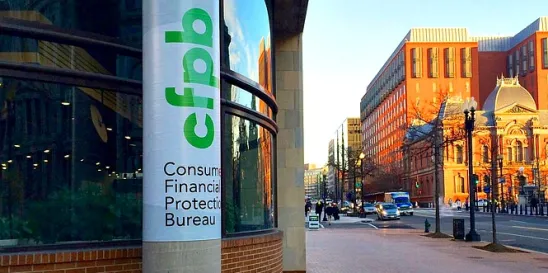On March 7, the U.S. Chamber of Commerce and bank trade groups including the Fort Worth Chamber of Commerce, Longview Chamber of Commerce, American Bankers Association, Consumer Bankers Association, and Texas Association of Business (Plaintiffs) sued the Consumer Financial Protection Bureau (CFPB) in the United States District Court for the Northern District of Texas over its new rule to limit credit card late fees to $8 (the Final Rule). The Final Rule has not yet been published in the Federal Register but was released to the public on March 5, 2024. The not-yet published Final Rule amends Regulation Z, which implements the Truth in Lending Act (TILA). The responsibility to regulate late fees falls to the CFPB. When promulgating a new rule, Congress requires the CFPB to “consider the potential benefits and costs to consumers and covered persons, including the potential reduction of access by consumers to consumer financial products or services resulting from such rule.” Relying on the 2009 Credit Card Accountability, Responsibility and Disclosure Act, or CARD Act, which requires that credit card penalty fees be kept at “reasonable and proportional” levels, the Final Rule adopts a late fee safe harbor threshold of $8 for those issuers and provides that the annual adjustments to reflect changes in the Consumer Price Index (CPI) do not apply to this $8 amount.
The lawsuit alleges that the CFPB violated the Appropriations Clause, exceeding its statutory authority and will ultimately harm consumers whom the CFPB is charged with protecting. Plaintiffs want the court to vacate the Final Rule. They argue, “[t]his rule effectively denies issuers the ability to do the very thing that Congress permitted them to do—charge a reasonable and proportional penalty fee for late payments, one that accounts for deterrence, the conduct of the cardholder, and costs to the issuer.” Plaintiffs further allege the CFPB is lumping together late fees and junk fees, which are two separate categories of fees. “Late fees—which consumers largely know about and accept as appropriate—have been wrongly lumped together with true junk fees, which take consumers by surprise and serve little purpose beyond generating revenue.”
Plaintiffs also requested a preliminary injunction to prevent irrevocable harm, relying in part on the Fifth Circuit’s ruling that the CFPB’s funding structure violates the Appropriations Clause. See October 2022 GT Alert. They argue the Final Rule deviates from the status quo and would “reduce the late-fee safe harbor applicable to larger card issuers to $8, both for first and subsequent late payments, and would no longer adjust this amount for inflation.” Eight dollars was selected as the reduced safe harbor because it will “cover pre-charge-off collection costs for Larger Card Issuers on average.” The Plaintiffs also contend that the Final Rule violates statutory requirements relating to the effective date, stating, “[t]he Final Rule provides only a 60-day effective date after publication in the Federal Register, instead of complying with the statutory requirement that any CFPB rules requiring disclosures different from those previously required ‘shall have an effective date of that October 1 which follows by at least six months the date of promulgation.’ 15 U.S.C. § 1604(d). The effective date also gives insufficient time to conduct a cost-based analysis, effectively forcing issuers into the new safe harbor.” Based on these issues, Plaintiffs assert the Final Rule imposes six types of harm on their members:
| (1) | most issuers must immediately begin updating their disclosures and statements for existing and prospective accounts; |
|
| (2) | issuers that cannot come into compliance by the effective date will risk civil enforcement actions and unrecoverable penalties; |
|
| (3) | the Final Rule will make consumers more likely to pay late, thereby increasing costs to issuers and potentially leading to higher costs for all consumers; |
|
| (4) | issuers will lose revenue; |
|
| (5) | issuers will lose money on accounts they never would have opened if they were limited to or had anticipated an $8 late fee; and |
|
| (6) | issuers may lose customer goodwill from needing to change other terms. |
This case follows another challenge to CFPB rulemaking related to a data collection rule on small business lending. See October 2023 GT Alert. That case is on hold pending the Supreme Court’s determination on the Fifth Circuit’s decision that the CFPB is unconstitutionally funded, with a decision expected by the summer 2024 term.




 />i
/>i

